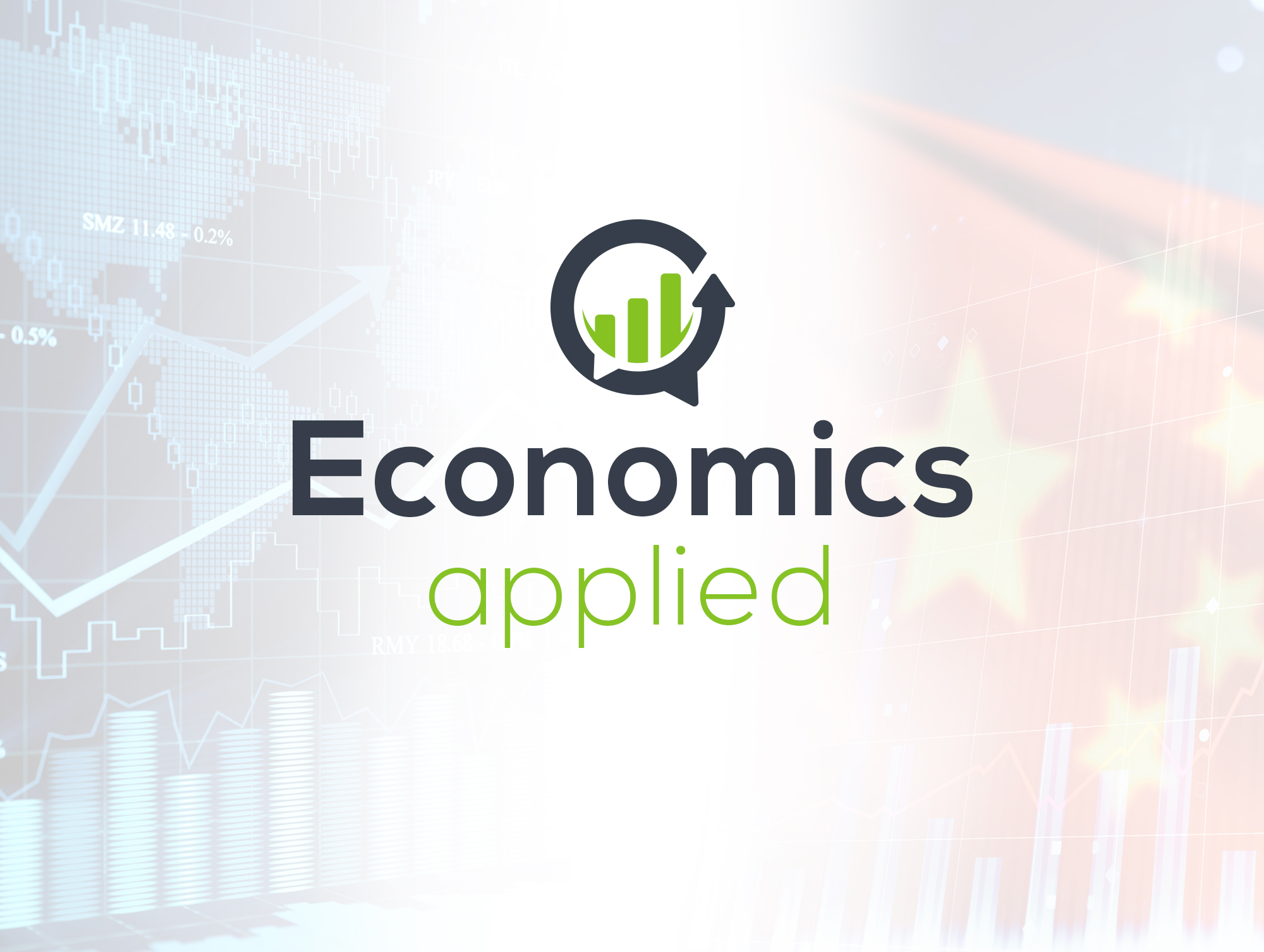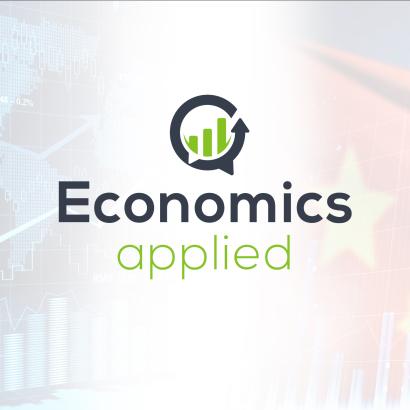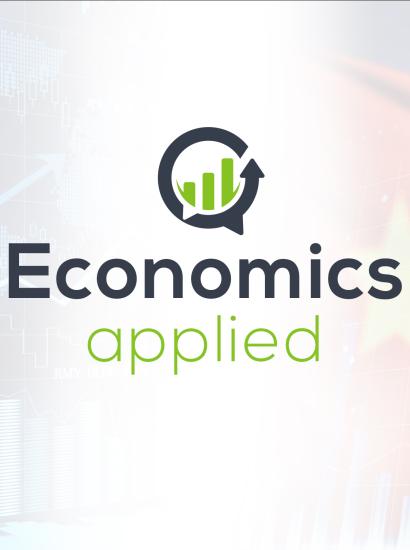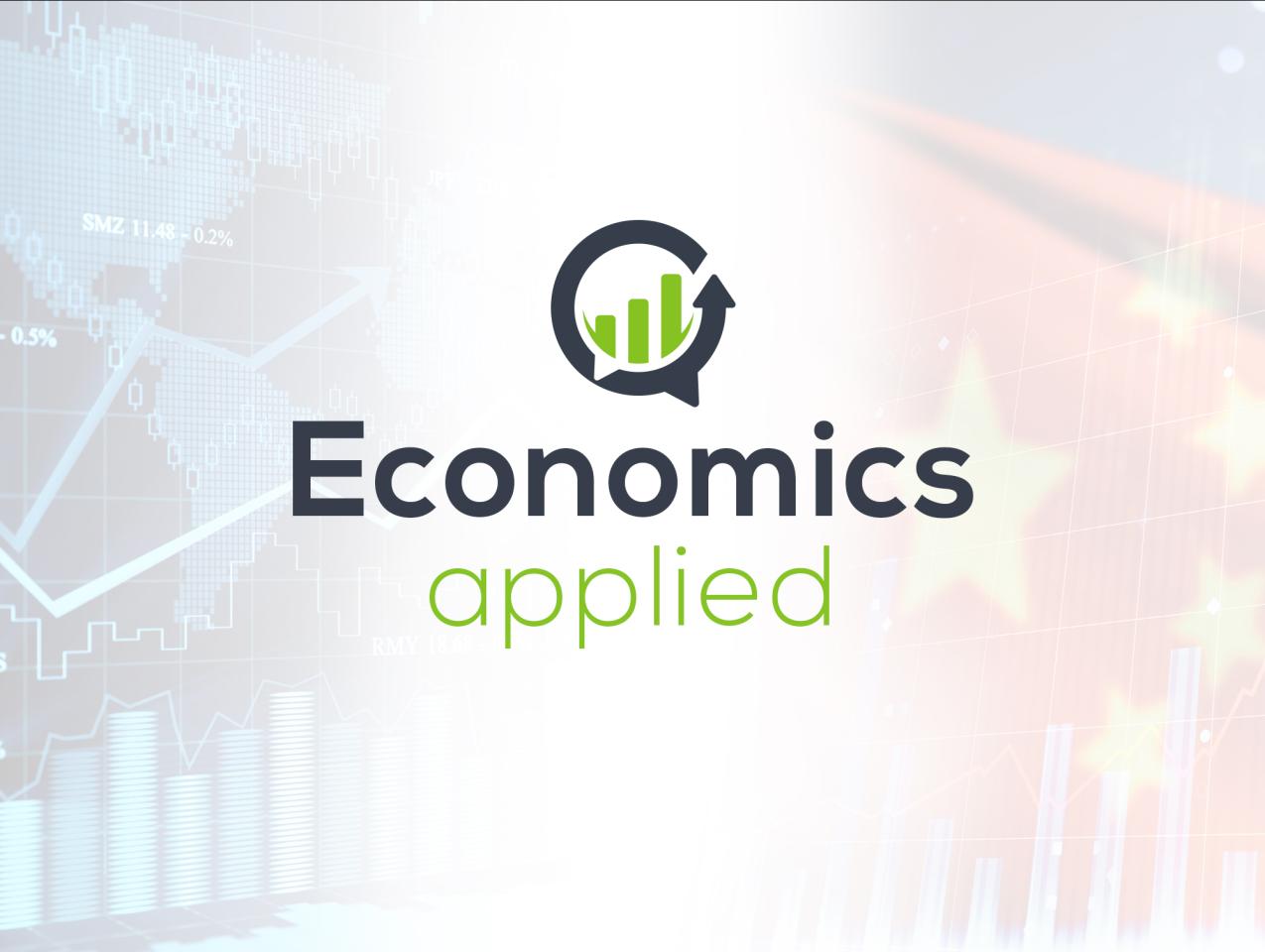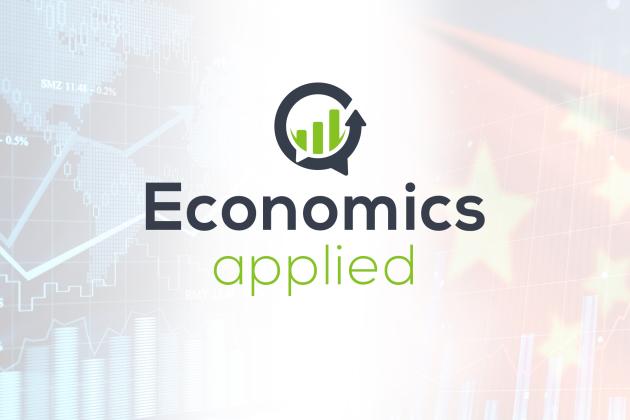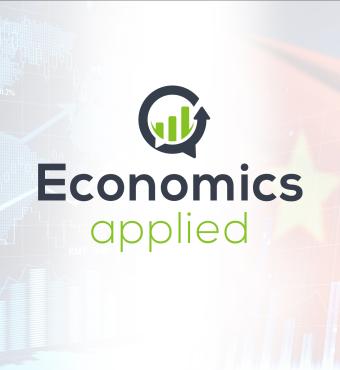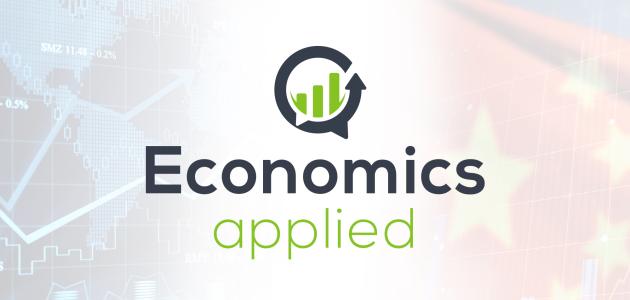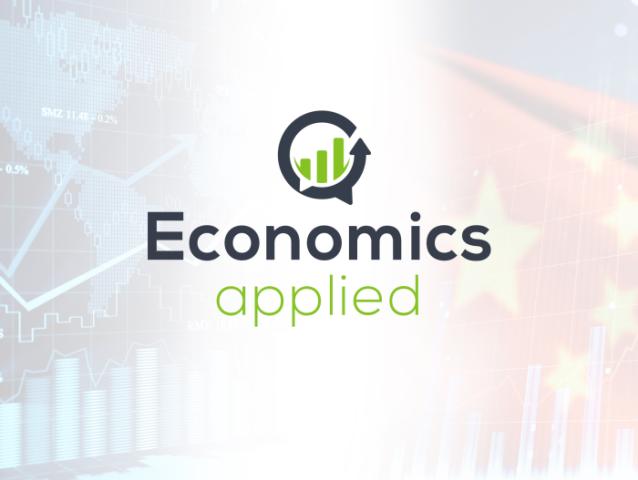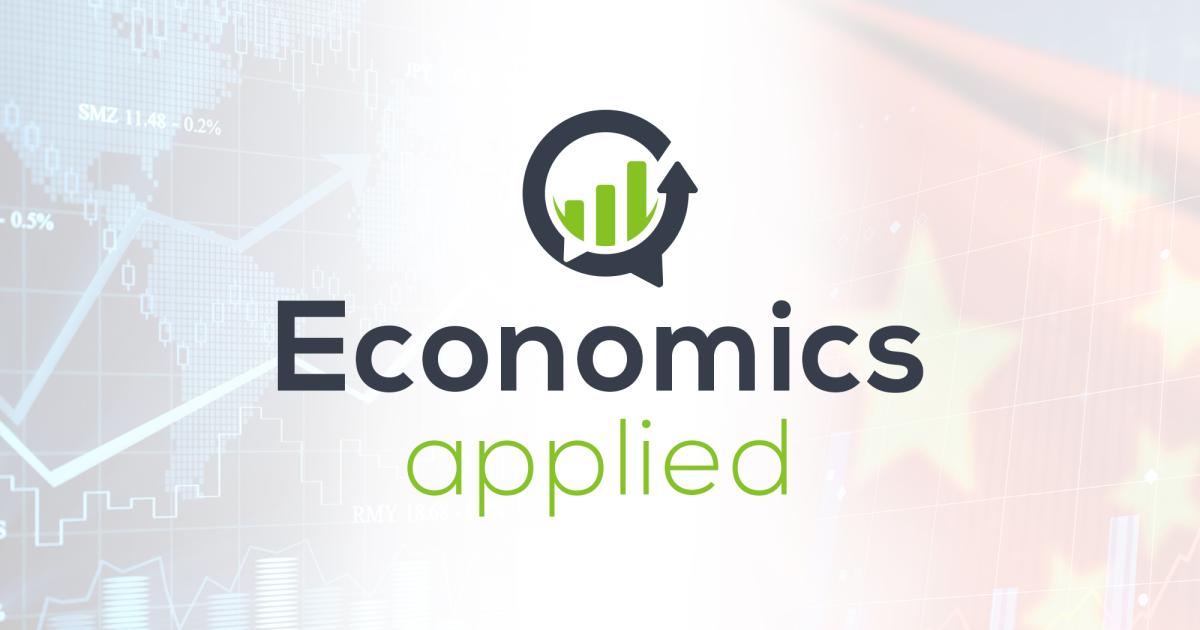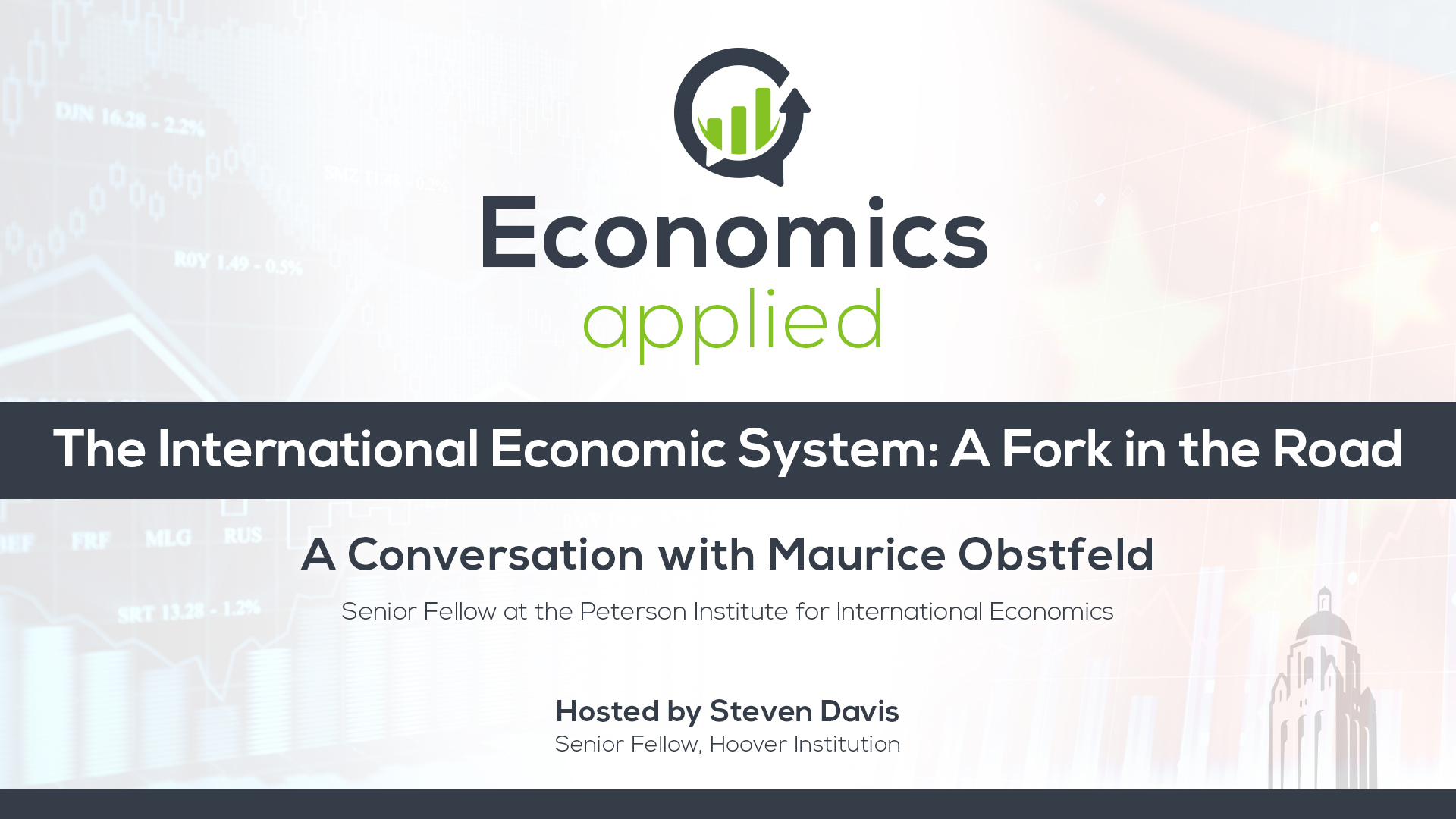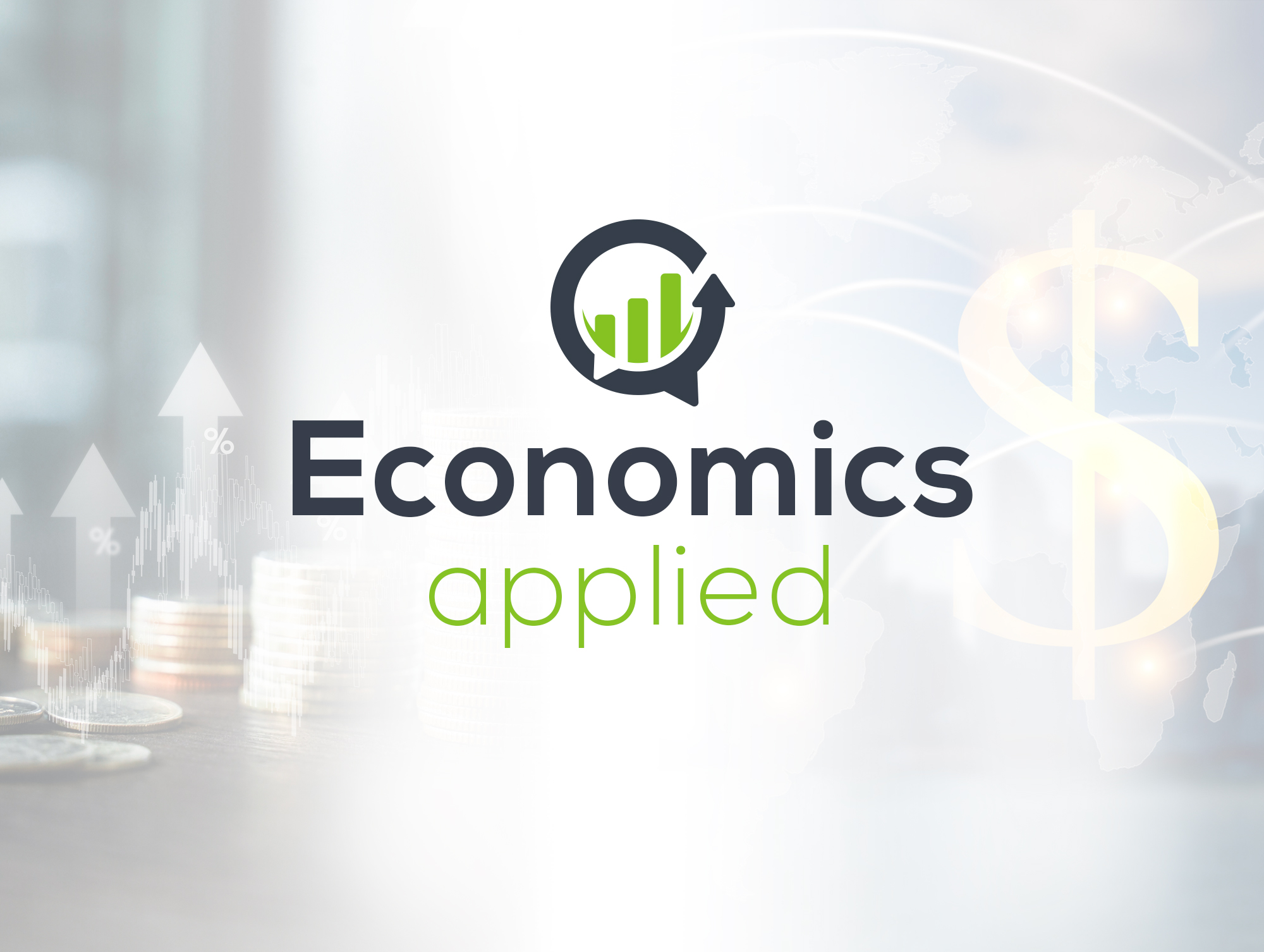- Economics
- Trade
- Answering Challenges to Advanced Economies
Steve continues his conversation with Maury Obstfeld about the international economic system, picking up the story in the 21st century. They discuss the rise of China, the degradation of the WTO, U.S. ambivalence about its role in the international system, and Trumpian trade policy disruptions. They also ask what comes next, and what are the potential costs and benefits.
Recorded on July 15, 2025.
WATCH THE VIDEO
>> Steven J. Davis: Welcome to Economics, Applied for part two of my fascinating discussion with Maury Obstfeld. In part one, we discussed the international economic system that emerged after World War II, how it fostered a broad based prosperity and how it evolved over the rest of the 20th century. In today's episode, we pick up the story in the 21st century.
We discussed the rise of China, US ambivalence about its traditional role in the international system and the degradation of the WTO, the World Trade Organization. We also consider how the second Trump administration in particular, has disrupted the international economic system and what that means for the United States and for the rest of the world.
Why don't we pick up the story in the 21st century when there, I guess, began to be more serious strains on what had been a largely successful and expanding international trade system? After China's accession to the WTO, there was initially that seemed widely regarded as a good thing, but now there are many certainly in the United States who regard that as a lamentable development.
One that has harmed the United States and whatever your view is about that, it's clear that it put tremendous strains on the WTO and what had been the accepted trading system. So China is emerging in the 21st century, had already begun before then, but really in the 21st century is a major economic power and a major geopolitical force, okay?
So the US Role, at least in relative terms on the global stage, security-wise, economics-wise, isn't quite as prominent as it was before, even though maybe in the monetary and financial system, it's just as prominent as it had ever been. The other big thing that happened over this period is the widespread adoption of inflation targeting of some form or another and the rise of the idea that central bank independence is an important ingredient in the conduct of sound monetary policy to restrain inflation and grow a smoother path of economic growth.
So here, I'm trying to rush this up to the 21st century. If I left anything really essential out or-.
>> Maurice Obstfeld: No, I think you're getting the broad contours. Absolutely correct.
>> Steven J. Davis: Okay, okay. Okay, great. We've jumped over a lot there, but now I want to get us closer to the central, the last few years.
And there was some of this at least back as far as the first Trump administration and really earlier, but they manifested themselves in a more visible way in the political system and the political rhetoric in the United States under Trump. Under Trump 1, we saw a hike in tariffs.
Under Trump 1, we saw more questioning of the US role in this broader international economic and security system, greater concern about China that continued without much alteration during the Biden administration and through the second Trump administration. So I think we're now at what you referred to as the fork in the road with respect to the title of your lecture, your Crockett lecture at the bank of International Settlements.
So there are a number of issues on the table now about which way we might move in the international financial monetary system or we might be through, we might go through a turbulent period. It's not clear what the system is. And I'd like to take some of those.
So can I put some on the table and get your thoughts and reaction to them?
>> Maurice Obstfeld: Absolutely.
>> Steven J. Davis: Okay, so let, let's maybe we start with trade. So as I said, already there was some increase in the tariff rate under the first Trump administration, but it was modest compared to what's happened in the last few months under the second Trump administration.
So there's the hike in the tariff rates. That's one thing to understand. There's the prospect of further tariff rate hikes, which are yet to be determined. But it's also, in addition to just that, the entire way in which the United States has approached tariffs on imported goods from the rest of the world has shifted.
It shifted from, at least in my judgment, from a kind of a rules based, process based approach, as when, for example, in Trump 1, at the behest of the Trump administration, the North American Free Trade Agreement with Canada and Mexico was renegotiated as the USMCA. That was a, whether you think that was wise or not, it was a process oriented approach.
This time it's President Trump deciding he's going to announce tariff hikes on, on X or send out letters to our trading partners in ways that often don't seem to have clear statutory authority, may even be unconstitutional. These matters are being litigated in the court system as we speak.
So that is a sea change really in the conduct of trade policy. And that's the third thing, I guess. So there's tariff hikes to date, prospects of more to come, sea change in how tariffs are determined in the United States. And then there's one more thing I'd like to put on the table in this respect, and that is just a tremendous uncertainty around tariff hikes that has been introduced by the conduct of the Trump administration in the second Trump administration.
So I lay that out because I think people sometimes get too focused on just one of those changes. There's really, as I just laid it out, four major shifts that are all rolled up in the change of tariff policy, trade policy under the Trump administration. So, first, do you agree with my description.
And second, what do you see as its consequences for the international monetary and financial system and for the United States?
>> Maurice Obstfeld: Well, I think you make an important distinction between these four aspects of tariff policy. President Trump campaigned on 10% tariff on everyone, 60% on China. He could have come into office and with maybe with questionable legality, but he could have imposed those tariff rates and said, okay, we've done it, we're going home.
And you all adjust to that. And I think that would have been costly for the US and the world. But we would have moved on very much the way, Nixon had a very well defined endpoint. Just, you guys revalue by 10% and we're done. It didn't work out well, but it was a more contained approach.
That's not at all what we've seen. It's been a very repeated Curial chaotic process which proceeds country by country among a large set of trading partners, and without any clear goal or end point. The underlying premise is that pretty much all of our trading relationships are unfair and we have to make them fair.
And we're gonna impose tariffs until you make concessions that are sufficient to us to partially roll back those tariffs. And this is a chaotic procedure, It's also one that one of the bedrocks of the post war trading system you mentioned, the GATT and the WTO is the most favored nation principle.
This again is a legacy of the 1930s. You don't discriminate among your trade partners. If you want to have a tariff, you can have a tariff, but have a level playing field for all your trading partners. Subject them all to the same tariff. Aside from the basic concept of fairness that underlies that, it's just much easier for businesses if they face a uniform tariff rate across potential suppliers.
Instead of worrying about tariff rates that are going to change, would it be better to source from another country? It's really, really costly. It raises all these issues that we've seen of Chinese goods getting shipped through Vietnam because it has a lower tariff rate, it's a mess for businesses.
So that's also an essential part of the chaotic process.
>> Steven J. Davis: And that's a good point, so I didn't mention that explicitly in my summary characterization of the change, but you're right, we've also thrown out the MFN principle.
>> Maurice Obstfeld: So that's a big deal once you do that outside of the context of specific free trade agreements.
But of course, Trump has also upended those free trade agreements. I mean, he also negotiated the Korea-US agreement and that's also, nonetheless, Korea has been threatened with 25% tariffs. It's not clear what the end point of all this is, what does he want? I mean, there's a belief that trade deficits are inherently evidence of cheating.
And no economist believes that. You know, of course trade can be affected by cheating, but you know, is the primary reason for the US overall deficit that other countries are being mean to us or is it that we, and including we, the federal government, you know, spends too much relative to the income it takes in.
So it's a very quixotic way of proceeding, which because it's fundamentally not fact based, doesn't instill great confidence that it's going to come to a conclusion that everyone is happy with for any significant period of time. I have to say that when, when this new administration didn't appoint Robert Lighthizer to any, any significant policy role.
What that told me was that you weren't gonna have serious negotiations because he, who of course oversaw trade policy in the first Trump administration, whether you agree with his views on trade or not, he's an incredibly skilled and experienced negotiator who knows his stuff. And if you want to drive a tough bargain, that's the guy you sent in and that's the guy who negotiated usmca.
But to sort of say, well, we're giving these negotiations to less experienced people whose portfolios, for example, Treasury Secretary, aren't really about trade, says to me that the outcome is not going to be good or durable. The uncertainty thing is a really big thing. Now, of course, you are one of the researchers who's developed news based uncertainty indexes.
And with respect to trade policy, those are at totally unprecedented levels now. And there's strong evidence that those indices affect investment decisions. And so I think that's bad news going forward.
>> Steven J. Davis: Right, right. And in this respect, it's important to understand that once you get away from things like basic foodstuffs or commodities, international trade requires a lot of investment on both sides.
If you're going to sell cars in the United States, well, you need to develop a dealer network and a repair network. And likewise, if the United States wants to sell cars in Europe, it has to do the same. And this kind of uncertainty really undercuts the willingness to make these kinds of investments because the tariffs are gonna change abruptly tomorrow without any notice, up or down.
Then all the expenditures you made in developing a market, marketing your products, developing a brand presence, creating a distribution network, those things may turn out to be bad decisions, ex post. And so the uncertainty doesn't affect all trade evenly. It especially undermines the kind of trade that involves significant investments on the consumer side or the production or distribution side.
And there's a lot of trade that fits that description.
>> Maurice Obstfeld: I mean, the other aspect of this that I think contributes to the uncertainty is that the way trade negotiations are being carried out, which is by extreme threats. These letters that President Trump has sent out with really unclear asks other than saying, you've been very unfair to us, this has to stop, invites retaliation.
And it may be only the bigger players like the EU or China, I feel they can retaliate effectively. But still, these are big players who account for a lot of our trade. And anyone contemplating investment decisions has to think about that also.
>> Steven J. Davis: Exactly, exactly. And okay. So what does this mean?
How are other countries gonna respond to this tremendous change in the parent change, which is probably gonna last at least through the second Trump administration and maybe longer? How are other countries likely to respond to this kind of change in US Policy?
>> Maurice Obstfeld: I think in general, and this also applies to your question about how this affects the international monetary and financial system.
I think they respond by trying to insulate themselves from US policy volatility and the US policy volatility has shown itself to be not merely about economic objectives, but also potentially about other objectives. Canada's barely existent flow of fentanyl across the border or Brazil's political proceedings against former President Bolsonaro.
And so the message the rest of the world gets is anything and everything about our economic relations with the US can be weaponized. Now, Trump's main hammer is a tariff, and for him, a tariff is the solution to everything. If Russia is bombing Kyiv, let's think about maybe in 50 days, imposing tariffs, even though we don't trade very much with Russia at this point.
But there are a lot of tools that the US has developed over the years under both Republican and Democratic administrations, to pressure countries not only through trade, but through the international banking network and in other ways that have other countries worried that these two could be weaponized. The seizing of, let me not say seizing.
The freezing of Russia's international reserves has led many countries to think about where and how they hold their international reserves. And I think given the track record so far of the Trump administration, no one has a lot of confidence or desire to be heavily exposed to what the US government might do, because a lot of the former norms and rules seem to be out the window.
>> Steven J. Davis: Okay, so a broad desire to insulate. I'm speaking from the perspective of other countries now, a broad desire to insulate themselves from the policy volatility and coercive aspects of policy and just the sheer chaos and uncertainty of US policy. And that manifests itself how? Well, more reluctance to trade with the United States is one, desire to move away from financial assets that are easily seized or restricted by US authorities.
You didn't mention it, but I presume also in this category is a desire to have alternatives to international payment systems that the United States can monitor and interdict and control. So incentives to create up alternative payment payments mechanisms. So all of these are basically an effort to make countries less exposed to what seems to them like arbitrary exercises of US economic and political power.
I got that right?
>> Maurice Obstfeld: Yeah, I mean, let me expand on a couple of things regarding the international financial system and payments in particular. One example, in 2008, after the global financial crisis, the Fed basically revived a network of swap lines that originate actually in the Bretton woods period in attempts to prop up the system of fixed exchange rates then.
And provided dollar liquidity to foreign central banks whose banking systems might have dollar liabilities that they were having trouble refinancing, rolling over in the crisis. So, in effect, the Fed became a lender of last resort in dollars for these financial systems. Within the context of US coercive trade policies and within the context of the current attacks on the Fed's independence, regulators in Europe have become to doubt the reliability of these swap lines.
They might be weaponized as well. And so they're encouraging banks to do less funding in dollars. Don't be so reliant on the dollar because we don't know if these dollars from the Fed are actually gonna be available in a crunch. In terms of payment systems, one of the ongoing projects within the G20 has been to enhance the efficiency of cross border payments.
Cross border payments remain very inefficient relative to domestic payments. International payments take a couple of days to clear. It's a system very much in need of upgrading. But having an efficient system requires deep integration of payment systems and central bank cooperation. Is that something that you want to expose yourself to?
I mean, I have long questioned whether it was feasible to incorporate China in such a system given the issues of Chinese surveillance and coercion and rule of law. But now increasingly countries ask those questions about the US this is also, this is also a big question in the sphere of dollar stablecoins and how foreign countries are reacting to the prospect of being being flooded with privately issued dollar stablecoins.
I think that's one area where there's concern in the foreign central banking community and the foreign financial regulatory community that there could be some risks that they don't wanna be exposed to.
>> Steven J. Davis: Right, so let me pick up on two aspects of what you said. First, I wanna just address a counter argument that I often hear, which I think is somewhat overstated or misstated, counter argument runs like this.
Yes, the US is doing all these things that are costly and annoy to other countries, but the US market is so big, we're so rich that other countries are still gonna want to sell into our market. And I think there's some truth to that. The thing is, it's not a binary matter.
It's not that nobody will want to sell goods and services to us because of chaotic policy. No, it's not the case that nobody will want to trade with us. It's just that they'll do less of it than they would otherwise. And if you start from the premise which going back to the very first parts of our show today, that international trade facilitates mutual prosperity, if you adopt a policy regime that undercuts international trade by 20, 30, 40% over the long term.
That's not good for us. It's not good for our trading partners or for our potential trading partners as well. So it's not enough to say that because the US market is so big, because the US is so powerful and rich, it can get away with all this stuff.
I think that argument, it just kind of misses the point that it's not a binary matter. You didn't raise this argument, I hear it all the time mainly from non-economists. So the other thing I wanted to talk about was, you raised the central bank swap lines. I think it's just a really important issue and it's a very technical, esoteric issue.
I don't think for most economists, if you get away from macro monetary international finance economist, they've never thought about these central bank swap lines. Why would they? But they do play a very important role and as you pointed out, the sense that you can have a reliable access to these central bank swap lines, they play a very important role in supporting dollar-based financial transactions lending in other parts of the world.
And that in turn, excuse me, that in turn is a part of the underlying source of demand for dollar denominated assets, which other things equal, makes it cheaper for the United States to fund its treasury security obligations. It makes for deeper, thicker, more liquid dollar-based debt markets throughout the world which also benefits the United States and US companies.
So it's the kind of thing which is almost invisible to most people but can actually be quite harmful. Not just in the middle of a crisis in which there might be dollar shortages elsewhere that are hard to address, but more subtly over the long term by undermining one of the sources of the dollar centrality in the international monetary and financial system.
And I don't, and I gather you share this view. I don't think it's in our interest to undermine that role. Let me see if you wanted to expand on that or correct anything I said.
>> Maurice Obstfeld: No, I would expand a little bit, I mean on both points. First of all, on the point that nobody has any choice but to transact with the US and it's not a sort of all or nothing thing.
I think what we could expect to see if the current policy direction continues is not a collapse in trade with the US but a gradual movement away from the US I mean countries outside of the US will deepen their trading relationships again when they decide where to invest in creating institutional infrastructure.
It's gonna be structures that avoid the vulnerability coming from US engagement. And basically the US is about 13 to 14% of total world imports. So another way to say that is to say that 86% of world imports are coming from outside the US, and that number is gonna go down in terms of how much US imports.
>> Steven J. Davis: The 13% number is gonna go down.
>> Maurice Obstfeld: Yeah, yeah, that's the number that's gonna go down.
>> Steven J. Davis: Right.
>> Maurice Obstfeld: The import footprint of the US will shrink. That is the design and goal of the Trump administration.
>> Steven J. Davis: We will benefit less from the benefits to be had from trading with other countries.
>> Maurice Obstfeld: Yeah, we will lose.
>> Steven J. Davis: Just like, yeah, you and I benefit because we have very. I don't know about you, but I have very specialized skills in a limited domain, and it's a darn good thing that I can trade with others for what I can't supply very well myself, that basic.
>> Maurice Obstfeld: Me too, my wife always reminds me of that.
>> Steven J. Davis: So you're also pretty useless around the household. Okay, but there's a serious point here, this point about comparative advantage in the gains to relying on our specialized skills. That point operates at the national country level as well.
So there's a deep seated wrong headedness to the notion that we want to insulate the United States from the rest of the world and somehow that's a good thing. So it's just worth stating that explicitly. So you haven't commented yet, at least not much on what all this means for what a pullback in US trade with the rest of the world means for the US fiscal positions and the challenges of dealing with our fiscal trajectory.
Do you see an important connection there, and if so, what is it?
>> Maurice Obstfeld: Generally, the sense that US policy is much more volatile I think undermines the credibility of US debt. The idea that US debt is rock solid and we should be willing to lend to the US at low, low interest rates.
This was I mean, part of the Treasury's ability to borrow more cheaply than it would would otherwise is the liquidity of the dollar, the use of the dollar. But there are also elements of confidence in the US commitment to open markets, the US commitment to the rule of law, the US commitment via central bank independence to a stable price level.
And I see all of those as coming into question and not entirely because of trade policy, but when we think about the general set of policies that the current administration is pursuing, they are kind of interlinked in various subtle and not so subtle ways. For example, the Fed is holding back from lowering interest rates because of the tariffs.
Chair Powell has been very explicit about that. The President's criticism of Powell is that he's not lowering interest rates. Although the President is not forecasting a slowdown in the US economies because the tariffs are going to be great. He just thinks that the cost of borrowing should be lower.
He thinks the depreciation of the dollar is a good thing cuz that helps adjust the trade balance in the direction he favors. Markets look at this. And I think maybe not today, but eventually you're gonna be saying this is not an environment in which we want to be lending to the US at comparatively low interest rates, because certainly not at long term, because we're pretty uncertain about the future.
So the trade piece, the international monetary piece, they really fit together with this fiscal piece. And furthermore, I would say that if the markets believe that a lower US trade deficit is a goal of policy, then fiscal policy is moving in the wrong direction. And that would portend even more volatility in policy.
>> Steven J. Davis: Explain that, explain that.
>> Maurice Obstfeld: Our overall trade deficit is the difference between what we absorb in goods and services from the world for consumption, investment, and government spending and what we produce. If we absorb more than we produce, we have to borrow abroad to finance that, and that is our trade deficit.
When the US government passes a bill like the Big Beautiful Bill, that increases the need for borrowing. And that's been projected by every credible forecaster, including the CBO, not including the Council of Economic Advisors, who I would not rank as a credible forecaster. But if the US Government's gonna borrow more, then probably the country's gonna have to borrow more.
If US savers can't absorb those additional treasury bills and bonds, then foreign savers have to absorb them, and they're gonna pay for those with goods and services that equal our trade deficit as a matter of algebra. So fiscal policy is pushing against what Trump claims he wants to do with tariff policy.
Now, tariffs are gonna generate some revenue, but by all accounts, it's not gonna be enough revenue to close up that fiscal gap that the O triple BA is opening up.
>> Steven J. Davis: Right, and just to be fair here, the tendency to live beyond our means at the federal government level didn't begin with this Trump administration.
>> Maurice Obstfeld: Absolutely not.
>> Steven J. Davis: So-.
>> Maurice Obstfeld: Absolutely.
>> Steven J. Davis: I just want to be fair here, since we've been fairly critical of the Trump administration. And when I think about all of the elements of the grievance narrative that emerges from the Trump administration, I guess the one that I think I have the most sympathy for is that our major allies, our major rich allies have not carried a fair share of the defense burden in recent decades.
And coming out of World War II, your major European powers were no real position economically to provide for their own defense in the face of the threats that emerged from the Soviet Union. And there was a real case to be made for the United States to take a hugely outsized role in providing for the global security order.
But that's no longer true, and it hasn't been true for decades. And I guess, I would say the European response in particular, in most cases, there are some exceptions until quite recently in terms of supporting their national security objectives and the objectives of the overall alliance in, say, NATO.
They've been anemic, they've been pathetic, and the Trump administration has complained mightily about that, and I think with some justification. I don't know if you share that view, but I've been quite critical of the Trump administration's approach to its outward looking policy on this case. I'm not saying they've done things right in this regard, but at least I understand the underlying impulse.
>> Maurice Obstfeld: That's definitely a valid point. I think in the period after the dissolution of the Soviet bloc, with Eastern Europe becoming free, there was a sense of letting your guard down, down. I mean, where are the threats? Why should we be spending all this money? And it's taken a long time for allies to wake up to the idea that China is a major threat, that Russia is a major threat.
I mean, certainly it's been a long standing theme of US Administrations, including the Obama administration, that you guys should be pulling your own weight on defense and not free riding off the US but even after the Crimean invasion, Germany was pursuing the Nord Stream project and.
>> Steven J. Davis: Right.
>> Maurice Obstfeld: Buying, being very dependent on Russian oil and gas. I mean, it's a good thing that these countries have woken up to the reality and committed to their own defense. And I think that that would be a good outcome of all the chaos we've seen, but achieved in a way that is pretty disruptive now.
Was there another way, we can argue about that.
>> Steven J. Davis: Right, so what comes next? Do you have any clear sense of what comes next for the international monetary, financial system or you want to put anything on the table that you feel reasonably confident about or just sketch out some alternatives and what their consequences would be.
We've chat a little bit about this already when our points about other countries trying to insulate themselves from US policy volatility. But what else can you tell us about what we might see down the road two, three, five, ten years from now?
>> Maurice Obstfeld: Well, it's also contingent that it's hard to make forecasts.
As Yogi Berra said, it's reputed to say, it's hard to make predictions, especially about the future.
>> Steven J. Davis: Well, so you can make contingent predictions.
>> Maurice Obstfeld: Contingent predictions.
>> Steven J. Davis: We'll take that.
>> Maurice Obstfeld: Yeah, well, I think the Trump revolution, if I can call it that has unleashed a lot of challenges and opportunities also for the rest of the world.
And whether they will rise to the opportunities or succumb to the challenges is not clear at this place. And for Europe, I personally think that the message is, pull closer together, develop a joint military capacity, develop more of a joint banking union, capital markets union, fiscal capacity. Some of these things are in the Draghi report, which predates recent events.
But Europe is otherwise consigned to be a sort of helpless, passive actor between Russia, China, the United States. So I think, I think Europe has the potential to get its act together. This could make the Euro a bigger player in international finance. So, coming back to your earlier point, people often say nobody can displace the dollar as the world currency.
I think that's true. But you could go to a multipolar world where the euro is more important, the RMB is more important, maybe even the yen is more important than the dollars.
>> Steven J. Davis: Right.
>> Maurice Obstfeld: Less important. So, Europe has to sort of find its voice, find its power and figure out how it's gonna position itself between the US and China.
I mean, to some extent there are a lot of reasons for Europe to cooperate closely with China on trade, on climate, on other issues, but it's also gonna have to deal with these spillovers from China's trade war with the US. Europe is not gonna be willing, I think, to passively accept a large trade diversion from China and suffer the kind of adjustment problems that the US complains about from the 2000s.
China, I think, is beset by internal tensions, internal challenges, but it's also clearly on a role in many respects. And I think the recent New York op ed piece, which I'm sure you read by David Otter and Gordon Hanson, points to the amazing strengths that China has developed in high tech areas and how that's gonna be a challenge for the rest of the world.
I think also China has internal challenges of a real estate crisis, slowing population growth, reshaping its trade relationships to account for the trade war with the US but it would be to the world's advantage. Just leaving aside the US if China were engaged in a productive way on common problems of global public goods.
So I think it's a challenge for Europe to engage China productively and it would be great if the US could find some way to do that as well. But I think the current environment of distrust and hostility is something that would take a long time to prepare. Maybe some future US administration may be up to the job.
The emerging markets, the third countries are increasingly playing a deserved major role on the world stage. Countries like Brazil, India, Indonesia are becoming major global players. And the fact that the US is basically alienating these countries with tariff threats rather than courting them rather than trying to build a stronger network of alliances in Asia is political malpractice.
It was a huge mistake in my view, for the first administration of Trump's in 2017 to withdraw from the TPP. And-
>> Steven J. Davis: Trans Pacific Partnership agreement.
>> Maurice Obstfeld: Yeah, that agreement went ahead without the US the UK is joining it. I mean, Europe is talking about close cooperation with them.
The fact that we are not involved in that, that we withdrew from that, that we basically stiffed all of our negotiating partners. It's a major blow to our position in the Pacific. So I think if the US retreats behind high trade walls, behind high walls to immigration, behind high walls to foreign students studying here, to we're cutting down on foreign service staff, for God's sakes.
I mean, what do we think that we can be the world's great power forever by simply withdrawing from engagement with the rest of the world. Every direction we are going as a country is contrary to that. And so, one scenario is that the rest of the con, the rest of the world, instead of devolving into squabbling, finds a way to cooperate without the US presence.
The US becomes a kind of isolated, more autarkic island. That's not a very good prospect for us or for the rest of the world. But that's one potential future.
>> Steven J. Davis: Yeah, so I guess, let me say a couple things here. I don't see much prospect for the rest of the world evolving towards a cooperative structure that achieves many of the benefits of the positive sum post war order without the United States re-engaging.
I just don't think that's a very likely prospect. I'm not even sure how much success Europe will have doing it within Europe. We'll see. So, I remain hopeful that the United States will move back closer to something like its traditional post war role. I do think even though Trump is having a profound effect on the US Political system, it's somewhat of an aberration that he got elected the first time and also the second time for different reasons.
So I don't actually see him as representative of the American political psyche as many others do. But I also think some of the costs of the United States disengaging from the rest of the world will mount over time and will become more evident over time, and that will eventually have effects on the political system.
We've talked earlier about the partial disengagement from international trade will, will other things equal lead to lower standards of living within the United States. It also means that the geopolitical leverage that we take for granted in the United States will diminish. And in this regard, it's worth pointing out that one reason China has so much geopolitical leverage on the global stage in recent years is because they are the largest trading partner for many countries around the world.
And if we step back from that role, we'll suddenly find that other countries aren't quite as interested in accommodating our policy preferences as they have been historically. US companies will lose access, will lose the ability to compete effectively if we isolate ourselves from the rest of the world.
So there will be mounting economic and political pressures for the United States to re-engage and I'm hopeful that we will. It's really a topic for another day, but I think major internal US reforms are probably necessary for that to happen in a big way given the types of disruption of norms and confidence in a rules based system that the Trump administration has brought about already in the first six months of this year.
>> Maurice Obstfeld: Yeah, I would love to believe that you're right about this all being an aberration for the US, I firmly believe that most thinking Americans, if you put it to them, would not be in sync with what we're doing. But as Adelaide Stevenson said, we need a majority.
But I'm not as confident as you though. I would be hopeful and I'm not also as negative about the prospects for the rest of the world having more sense even without US leaderships. But let's hope that the US political system wakes up to what's going on, to our loss of influence.
I worry that this was true after World War I. The US withdrew, we needed a major disaster in the form of World War II to get us back.
>> Steven J. Davis: Yeah.
>> Maurice Obstfeld: Even after World War II, the US was somewhat withdrawing, but the shock of the Cold War kept us in the game.
So let's hope that we don't have to go through something like that before we wake up.
>> Steven J. Davis: Amen to that. And I think, I think we'll close it on that note. Maury, thanks. It's been a great conversation, and thanks for educating all of us, including me, on these matters today and over the years, and I look forward to many more conversations to come.
>> Maurice Obstfeld: Absolutely Steve, it's been a pleasure. Thank you.
>> Steven J. Davis: Okay, thank you, take care Maury.
>> Maurice Obstfeld: You too.
ABOUT THE SPEAKERS
Maurice Obstfeld is a Senior Fellow at the Peterson Institute for International Economics, Emeritus Professor of Economics at UC-Berkeley, former Chief Economist at the International Monetary Fund, and one of the world’s leading international economists.
Steven Davis is the Thomas W. and Susan B. Ford Senior Fellow and Director of Research at the Hoover Institution and Senior Fellow at the Stanford Institute for Economic Policy Research (SIEPR). He is a research associate of the NBER, IZA research fellow, elected fellow of the Society of Labor Economists, and a consultant to the Federal Reserve Bank of Atlanta. He co-founded the Economic Policy Uncertainty project, the U.S. Survey of Working Arrangements and Attitudes, the Global Survey of Working Arrangements, the Survey of Business Uncertainty, and the Stock Market Jumps project. He also co-organizes the Asian Monetary Policy Forum, held annually in Singapore. Before joining Hoover, Davis was on the faculty at the University of Chicago Booth School of Business, serving as both distinguished service professor and deputy dean of the faculty.
RELATED SOURCES
- “The International Monetary and Financial System: A Fork in the Road,” Andrew Crockett Memorial Lecture delivered by Maurice Obstfeld in Basel, Switzerland, 29 June 2025.
- “Maurice Obstfeld on the Trade War’s Damage to the Monetary System,” Central Banking, 22 May 2025.
FOLLOW THE GUEST
- Maurice Obstfeld’s personal website
- Commentary by Maurice Obstfeld
ABOUT THE SERIES
Each episode of Economics, Applied, a video podcast series, features senior fellow Steven Davis in conversation with leaders and researchers about economic developments and their ramifications. The goal is to bring evidence and economic reasoning to the table, drawing lessons for individuals, organizations, and society. The podcast also aims to showcase the value of individual initiative, markets, the rule of law, and sound policy in fostering prosperity and security.
For more information, visit hoover.org/podcasts/economics-applied.







